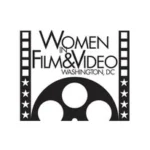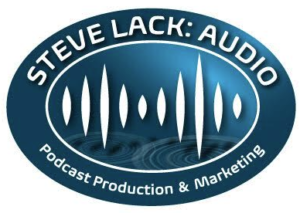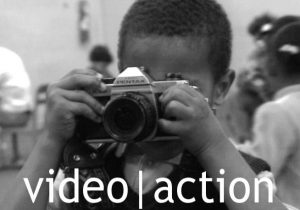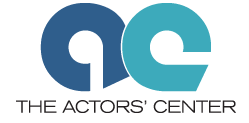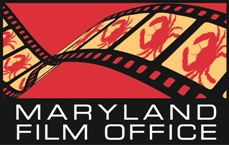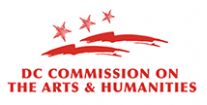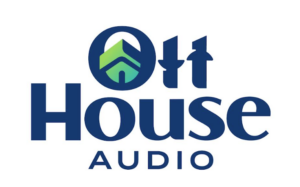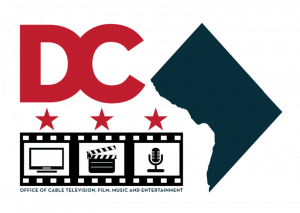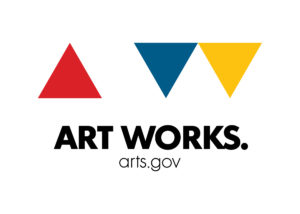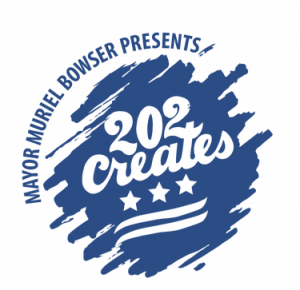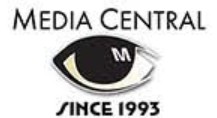October Wednesday One: Making the Most of Film Festivals
By Kathy Dismukes
John Benedetto of the WIFV board hosted a packed session at Interface Media Group with an excellent, diverse panel that included festival guru Jon Gann, programmer Monica Schorn, writer Brian Matusz, and writer-producer Jane Barbara. I took notes furiously and boiled down the discussion into this Q&A format. Let’s get right to it, because there’s a ton of information and resources that the panel shared, plus some cool insider tips.
Is my film ready to submit to festivals? Am I ready?
Before anything else, you have to have a great film, and as Jon Gann put it, “You can only make movies if you see movies.” Have you watched enough films, especially those similar to your own? Have you read enough screenplays? Have you educated yourself about the art and business of filmmaking and festivals? Are you plugged into a supportive community? WIFV’s pretty handy for that! Focusing on originality—what you bring to a media project—can distinguish you from everyone else out there. But be sure your film actually finished and ready for the festival circuit. Is it the cut you want to have seen by influencers and the public? It’s a big no-no to submit an unfinished cut. If you’re not ready, submit next year. All of this applies to screenplays as well.
Where do film festivals fit in the life of my film?
A festival run is one step in the journey of a film. At this point it’s all about getting eyeballs on the screen and recouping expenses. But you also need to market your film, which is a huge, multifaceted effort. (There are even marketing techniques to create buzz around your film’s acceptance into a film festival.) You also need publicity and distribution, and depending on the film, community screenings, partner events, and more. Be sure to educate yourself about all of these components, budget for them, and begin working on them early on.
How can festivals help?
Provided you’re festival-ready, the obvious benefits are exposure, awards, and possibly distribution. But networking may be the greatest advantage: you can meet your tribe—your fellow filmmakers are your sounding board, your comrades in arms, and in some cases, your future colleagues. What’s more, festival directors and programmers are incredibly valuable contacts. There are also a number of festivals that feature screenplay competitions, as well as standalone screenplay competitions.
Which festivals should I enter?
There are more than 3,000 festivals in the US, so you need to be very clear on your goals and be prepared to do some serious research. First, remember who your audience is. Which specific demographic groups will be attracted to the subject matter, themes, and story? Who will show up to see your film at a festival? With that in mind, here’s a suggested process:
- Review FilmFreeway and/or Without a Box* to identify possibilities. Find those with the right genre, length, demographic focus, etc. Insider tip: Regional festivals can be good options, and cities with large communities of seniors can be great for festival attendance.
- Look at the actual festival dates (as opposed to the submission dates). Can you be there on those dates? Make a wish list. As a rule of thumb, you might get in to about 1/3 of the festivals you enter.
- Before you submit and pay the fee, you’ll want to do the next level of research. Check out previous catalogs of the festivals on your list. What types of films (or screenplays) have they accepted before? Insider tips: 1) A great strategy is to get in touch with filmmakers who’ve had their films accepted in previous years and ask them what their experience was like; 2) Look at the pictures of parties from previous years, where you’ll see attendees, VIPs, and other filmmakers. Are those people in your audience demographic?
- Festival applications usually ask for a logline and a synopsis that may be 50 words, 100 words, and/or a paragraph. Some ask for more, like a director’s statement, treatment, etc. Be sure to organize your funding, marketing, and festival language in one place, as all can be interchangeable.
How are films selected and scheduled?
Programmers take numerous factors into consideration when selecting and scheduling films, including:
- Does the film (or screenplay) fit the festival’s purpose and personality?
- Will the film help the festival line-up to be balanced?
- Understanding that at a basic level, most stories can be boiled down to a few archetypes, does your film offer a fresh spin, new perspective, or fodder for dynamic conversations?
- Is the narrative strong, story structure solid, and production quality top-notch?
- Does it provide diverse voices? Is the content on point in terms of trends (e.g., #metoo, #blacklivesmatter, #endfamilyseparation)?
- When a film doesn’t get in, it’s usually because:
- It’s not appropriate or lacks quality.
- It might be a good fit but programmers have already selected a similar film.
- Other
Talk to me about money.
- Most festivals charge some kind of entry fee, and you’ll want to budget ~$70 per. No, festival organizers cannot waive the fee. Rest assured, entry fees don’t cover their budgets.
- It’s important that you should submit as soon as they open submissions, or at least hit the first deadline. Not only is the entry fee lower, but you will get your film in for consideration before festival programmers have watched hundreds or thousands of films. They select films as they go, so if your film’s in the first batch, your chances are better.
- Be sure to budget $1500 to $2000 for travel, hotel, meals, and extras for each festival you get into. You will also need to budget for marketing materials and visual and music rights.. No, festivals can’t go in on grants with you. That wouldn’t be fair to other filmmakers.
I got in! Now what?
Be purposeful about your engagement and learn how it works before you go so you can make the best use of your time.
- First, be sure to contact festival organizers to thank them and ask for advice. It is a serious no-no not to communicate with them. They love films and filmmakers—otherwise they wouldn’t be in the festival business. Festival directors are eager to create the atmosphere that fosters creativity, connections, and fun.
- Festival pros will send you an agreement with several questions. Be sure to be fully honest in your answers. You must have festival visual and music rights, and some festivals, like AFI, have different criteria. Make sure your film’s in the right format and that you get it to festival staff before the deadline.
- When you receive the schedule, don’t complain about your film’s timeslot or venue. A seemingly bad time is not a punishment. Insider tip: Programmers know what audiences will be attracted to it and when and where those folks will show up. Selecting your film was a big deal for programmers—they want every film to succeed.
- As the time approaches, call and ask questions. If you establish good relationships with programmers, they’ll even informally mentor you, help you decide what other festivals to enter, and connect you to other filmmakers. But be careful not to self-promote, and don’t be a jerk. The network of festival pros is tight-knit, everybody knows everybody, and many pros work on more than one festival. If you make a bad impression your reputation can carry.
- Get your social media humming. Getting into a festival is big news for a film’s profile and support community and can generate press exposure, too. You can ask the organizers for a pared-down press list. They won’t likely share their whole list, but they may give you some information.
What do I bring with me?
You will need to plan on sending more information on your film and your experience making it. Your marketing materials can be simple, but you do need:
- Hard copies of a postcard and your business card. Make sure there’s plenty of white space on your card because people will write notes on it.
- Basic website and online press kit. To see other films’ press kits, google “press kit film name.” How are they talking about their films?
- Electronic copies of a poster and three or four engaging, good still photos that represent your film for the festival’s catalog/program. Make sure they’re the right size and resolution the festival asks for.
- Be sure to bring protein bars, almonds, or other snacks because you will be running the whole time you’re there.
Time for you to shine, introvert!
- Research the speakers, panelists, and relevant films so you can ask good questions, support your fellow filmmakers, make connections, and build relationships.
- Give yourself enough time to get there, check in to your hotel, and take a deep breath or ten.
- Pick up your badge at check-in. Here’s the first opportunity to introduce yourself and make connections. After you’ve bonded with staff, you can ask to meet the hospitality manager and the festival director. If you’re an introvert (as many filmmakers are), tell them, “I’m an introvert, help!” They’ll help. Insider tip: Try paraphrasing a humorous quote, e.g., “Everyone shines [even introverts like me], given the right lighting.” (Susan Cain); or use a catchphrase, e.g., “Your friendly neighborhood introvert, here.”
- Your two main responsibilities are to meet people and watch films. Attend the panels and discussions. Go to the parties. Be prepared to answer the question, “So, what’s your next project?”
- Take pictures and video and post to social media. You can also use these later.
- Remember, you define what success is. If you don’t win an award, you’re still making connections and being inspired by the energy, the artistry of other films, and people who really get you.
- Follow up with people you’ve met. Gracious filmmakers get invited back, but programmers need to know you.
What happens next?
- Always write personal thank you notes and stay in touch with the people you met. It’s possible a contact will write a note of support for you for another film festival. Insider tip: A great follow-up action is to offer to be a screener or reader for the next festival. Programmers want the opinions of filmmakers and writers.
What’s the festival scene like in the Washington area?
- The DC area has 85+ festivals! In October alone there is the Middleburg Film Festival, Double Exposure Film Festival, Chesapeake Film Festival, Arabians Sights Film Festival, “Meet the Press” Film Festival in Collaboration with the American Film Institute, Washington West Film Festival, and the Atlantic Festival.
- DC has 175+ embassies, residences, chanceries, and diplomatic missions. They have cultural programs, movie screenings, and other kinds of events.
- DC has numerous museums, universities, and other institutions that offer opportunities to show your film.
Can you recommend some resources?
Jon Gann’s book – Behind the Screens: Programmers Reveal how Film Festivals Really Work
American Academy of Film Writing blog – http://www.theafw.com/blog/
Film Freeway blog – https://medium.com/filmfreeway
MovieMaker magazine – https://www.moviemaker.com/
* Withoutabox submission services will be disabled Sept.16, 2019, and access will be disabled on Oct. 30, 2019. Filmmakers should check with individual festivals to inquire about future submission processes. Thanks, Faith DeVeaux, for this head’s up.
Jon Gann is the Founder of DC Shorts and creator of the DC Shorts Film Festival. He has also served as the Executive Director of CINE. He is a founding member of the Film Festival Alliance, comprised of about 150 festival organizers and from across North America, and he sits on the Advisory Board at George Mason University’s School of Film & Video Studies. Through Reel Plan, he consults with filmmakers on the festival circuit. He is the author of two books, Behind the Screens: Programmers Reveal how Film Festivals Really Work and So You Wanna Start a Film Festival. He is also a filmmaker.
Monica Schorn is a graduate of NYU’s Tisch School of the Arts (concentrations in screenwriting and children’s media) who was drawn to the world of festivals early on. She has worked for the Nantucket Film Festival, Fusion Film Festival, and the AFI-Discovery Silverdocs Film Festival, and she is currently festival coordinator for the Environmental Film Festival in the Nation’s Capital. She served as associate producer on the feature-length documentary, Glasnost Coda: Singing in Siberia, and she is also a screenwriter.
Brian Matusz is a screenwriter who wrote, shot, and produced the short, Dead Run, and wrote Danny Morgan’s Authentic Eats: A D.C. Original. A frequent Austin Film Festival attendee, he is writing a spec screenplay, is scoping the outline for a second, and has entered scripts into Nicholl Fellowship competition. He is Membership chair for the 2000-member DC Filmmakers Meetup and organizer of the 1260-member Washington Screenwriters Meetup. He majored in Management of Information Systems at Oakland University in Rochester, and by day he is a software development consultant for Microsoft.
Jane Barbara has completed five feature-length screenplays and several shorts, and is developing several television series. She wrote and produced the comedy short, LOBSTER FRA DIAVOLO – The Movie, which won awards and screened at the 2015 Cannes Court Metrage Shorts Film Corner and other festivals. The screenplay was a finalist at the 2014 Moondance International Film Festival screenplay competition. Her short, LEIA’S ARMY, won the Best Director Award at 2018 NY Chain Film Festival and the Global Impact Film Festival. It will be screened at the Imagine This Women’s International Film Festival. She has a Fine Arts Degree from Parson’s School of Design. She is Chair of Women in Film & Video’s Screenwriters’ Roundtable and ScriptDC, WIFV’s annual filmmakers’ conference.
John Benedetto is a member of the WIFV Board of Directors who is fully immersed in the DC media world as a writer, director, and editor. He has written for Capital Arts Entertainment, the FBI, and HGTV, has completed six spec screenplays, and is finishing his first novel. He has edited five feature length films and six different true crime reality TV series for networks such as ID, TVOne, and LMN. He has an MA from AU’s Film and Video program and is also an award-winning VFX artist. He co-founded XIII Stories Media and recently co-wrote and co-directed their horror short, THE PHAGES. His team is currently submitting it to festivals around the world.
* * *
Kathy Dismukes is the founder of Pintail Productions, a Washington, DC area media production enterprise. Pintail Productions helps companies, associations, and nonprofits make strategic, effective use of both traditional video and new formats like 360 and AR. Kathy is also an impact producer and consultant specializing in fundraising, partnership building, and community outreach for films and nonprofits. A Women in Film & Video member since 2007, she served for two terms on the board of directors, including as VP of Development.
